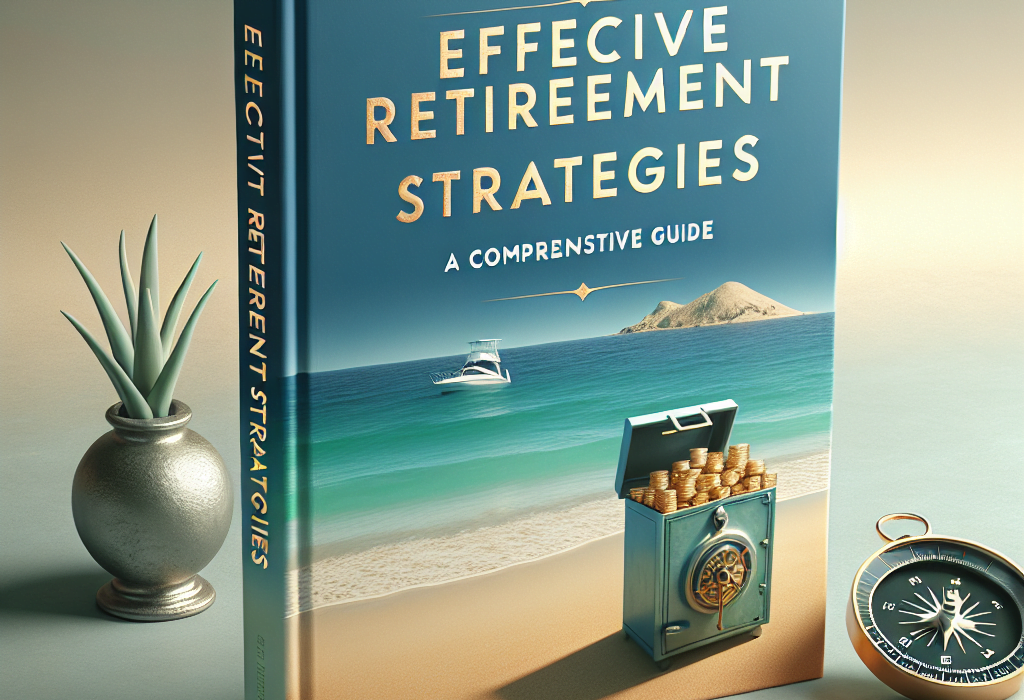Introduction
Retirement planning is an essential part of financial management that every individual needs to consider. A well-planned retirement strategy can help ensure financial security during the golden years. The best time to start planning is today, as it involves long-term investment which motivates you to wisely save and invest money. Effective retirement strategies can be a comprehensive guide to planning for a secure future. This article will take a closer look at these strategies and how to implement them effectively to secure a comfortable retirement.
Understanding Retirement Plans
Before adopting any retirement strategy, it’s vital to understand different types of retirement plans available. Traditional plans include pension, 401(k), or an Individual Retirement Account (IRA). Novel plans like Roth IRA, Roth 401(k), and Health Savings Account (HSA) are also available.
A pension plan is provided by the employer where a certain amount is paid periodically to employees after retirement. A 401(k) is a qualified retirement plan allowing workers to save and invest a part of their paycheck before taxes are taken out. The Roth plans function similarly but the contributions are made from after-tax income. An HSA is a tax-advantaged medical savings account available to taxpayers enrolled in a high-deductible health plan.
Creating a Retirement Budget
Effective retirement requires a concrete understanding of your financial situation. Create a clear retirement budget that can help manage your income and expenses during retirement. It should cover sources of income, the cost of living, taxes, healthcare costs, etc. Having a realistic budget will help ensure that you don’t outlive your savings.
Investment Strategies for Retirement
Diversifying your overall retirement plan to include different types of investments can be a smart move. Adopting an aggressive investment strategy early in life and switching to a conservative approach as you approach retirement is a common practice. Always consider your risk tolerance and time horizon when making investment choices.
Retirement Asset Allocation
Retirement asset allocation is how you divide your retirement portfolio among different types of investments. This decision has a significant impact on whether you can reach your retirement goals. The right asset allocation depends on your risk tolerance and how long you have until retirement.
Retirement Income Planning
A good retirement income plan coordinates your retirement spending with your income and tax situations. It’s a practical way to make sure you have enough money to cover your retirement living expenses.
Risk Management
Retirees face unique risks that affect their income and assets. Market fluctuation risk, inflation risk, longevity risk, and healthcare risk are a few to consider. Developing a comprehensive retirement plan that includes risk management strategies will help protect you from these risks.
Review and Adjust Your Plan
Life does not always go as planned. Regularly reviewing and adjusting your retirement strategy is necessary to accommodate changes in your life and market conditions.
Conclusion
Planning for retirement is a lifelong process that needs commitment, patience, and sound financial management. The sooner you start, the better off you’ll be. Remember to regularly review your retirement strategy and make necessary adjustments to stay on track. Effective retirement strategies can provide a roadmap to a comfortable and secure retirement.
Frequently Asked Questions (FAQs)
What is the right age to start planning for retirement?
The best time to start planning for retirement is as early as possible. The sooner you start, the more money you will have accumulated by the time you retire.
What is a 401(k) plan?
A 401(k) plan is a retirement savings plan sponsored by an employer. It lets workers save and invest a part of their paycheck before taxes are taken out.
What is asset allocation?
Asset allocation is a strategy that divides your investments among different categories such as stocks, bonds, and cash. The rationale behind this technique contends that different categories of investments will yield different returns
What are the risks associated with retirement?
Some common retirement risks include longevity risk, inflation risk, market volatility risk, and healthcare risk.
How often should I review my retirement strategy?
It’s good practice to review your retirement strategy at least once a year or whenever there are significant changes in your life or the markets.













